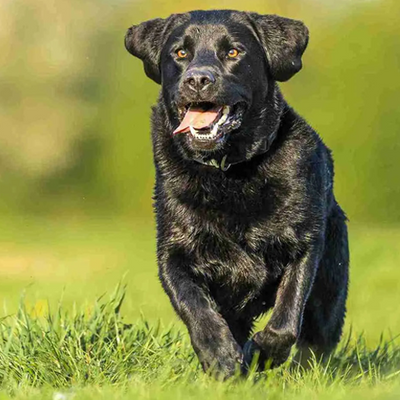The Soft Coated Wheaten Terrier Companion Guide
Quick take: Soft Coated Wheaten Terriers are joyful, affectionate, and people-loving dogs known for their silky coat and trademark “Wheaten greetin’.” They thrive with consistent training, regular grooming, and interactive play that matches their upbeat, social personality.
Want to explore more breeds? Visit the full hub here: Top 50 Purebred Dog Guide.
1. Introduction to the Breed
The Soft Coated Wheaten Terrier is a medium-sized terrier with a friendly, outgoing temperament that sets it apart from many more independent terrier breeds. Playful and deeply bonded to their families, Wheatens are excellent companions for active households that enjoy interaction, training, and daily engagement.
2. History of the Breed
Originating in Ireland more than 200 years ago, the Soft Coated Wheaten Terrier was bred as an all-purpose farm dog. Wheatens worked as vermin hunters, herders, and watchdogs. Unlike other terriers bred strictly for prey drive, Wheatens were valued for versatility and cooperation with people. The breed gained recognition in the United States in the mid-20th century and quickly became popular for its friendly nature.
3. Physical Characteristics
Typical Size and Weight
Wheatens typically stand 17–19 inches tall and weigh around 30–45 pounds. They have a sturdy yet athletic build that supports both play and endurance.
Coat and Color
Their hallmark feature is the soft, silky, continuously growing coat. Puppies are born darker and gradually lighten to the signature wheaten color as they mature. While low-shedding, the coat requires regular grooming to prevent matting.
Distinctive Features
Soft expression, flowing coat, and a square, balanced frame give Wheatens a cheerful, approachable appearance. Their dark eyes and alert posture reflect their bright, curious personality.
4. Personality Traits
Wheatens are affectionate, enthusiastic, and highly social. They love being part of family activities and often greet people with excitement. While friendly, they’re still terriers at heart—confident, curious, and sometimes stubborn—making consistent training important.
5. Care Requirements
Exercise Needs
Soft Coated Wheaten Terriers need about 45–75 minutes of daily exercise. Walks, backyard play, training sessions, and interactive games help burn energy and prevent boredom-related behaviors.
Grooming Needs
Grooming is a major part of Wheaten ownership. Their coat should be brushed several times per week to prevent tangles and mats, especially around the legs, ears, and collar area. Many owners schedule professional grooming every 6–8 weeks.
LibertyPaw Grooming Pick for Soft Coated Wheaten Terriers
A silky, continuously growing coat benefits from a grooming tool that can gently work through tangles without pulling. A high-quality comb helps keep the Wheaten coat smooth, comfortable, and manageable between professional grooming visits.
Shop Grooming Tool for Wheatens
Prefer browsing? Explore the full grooming lineup here: LibertyPaw Pet Grooming Products
Dietary Considerations
A balanced, high-quality diet supports the Wheaten’s energy level and coat health. Portion control helps maintain ideal weight, and some Wheatens benefit from diets that support skin and digestion. Always provide fresh water, especially after play or exercise.
6. Health and Lifespan
Soft Coated Wheaten Terriers typically live around 12–15 years. Potential health concerns include protein-losing enteropathy, kidney issues, and hip dysplasia. Responsible breeding, regular vet visits, and maintaining a healthy lifestyle contribute to longevity.
7. Training and Socialization
Wheatens are intelligent and eager to interact, but they can be independent thinkers. Positive reinforcement training works best, with short, engaging sessions. Early socialization helps manage over-exuberant greetings and builds polite manners with people and other dogs.
8. Ideal Home Environment
Soft Coated Wheaten Terriers adapt well to a variety of living spaces as long as they receive daily exercise and attention. They do best in homes where they’re included in family activities and not left alone for long periods. A structured routine helps them feel secure and balanced.
9. The Best Dog Bed for a Soft Coated Wheaten Terrier
Wheatens are medium-sized, active dogs that benefit from a bed offering both comfort and support. After play, training, or long walks, a quality bed helps them relax and recover properly.
A supportive, well-cushioned bed helps distribute weight evenly and reduces pressure on joints—especially useful for adult Wheatens who stay active year-round.
Because Wheatens move frequently between indoor and outdoor activity, easy-to-clean materials are practical for everyday use while still providing cozy comfort.
For senior Wheatens, extra support can help reduce stiffness and encourage deeper, more restorative rest.
Find the Right Bed for Your Wheaten
10. What’s the Best Toy for My Soft Coated Wheaten Terrier?
Wheatens enjoy toys that balance playfulness with durability. They love interactive games, carrying toys around the house, and engaging with their people during playtime.
LibertyPaw Toy Picks for Soft Coated Wheaten Terriers
Toy Pick #1: LibertyPaw Plush Hydrant Dog & Cat Toy
This soft toy is perfect for indoor play, gentle tug, and carry-around fun—great for a social breed that enjoys interactive but not overly aggressive play.
Toy Pick #2: LibertyPaw RECON Camo Bone
A durable option for fetch and light chewing, this toy gives Wheatens a satisfying outlet for play without overwhelming their medium-sized jaws.
Want more USA-made options? Browse the full toy collection: LibertyPaw American-Made Pet Toys
11. Adoption and Breeder Tips
When choosing a Soft Coated Wheaten Terrier, work with breeders who perform health testing for kidney and digestive conditions and who prioritize stable temperament. Breed-specific rescues are also excellent options. With consistent training, grooming, and engagement, Wheatens make joyful, loyal companions.
Disclaimer: This breed guide is intended for general informational purposes only and does not replace professional veterinary advice, diagnosis, or treatment. Every dog is unique, and individual needs may vary based on age, health, activity level, and environment. Always consult a licensed veterinarian or qualified canine professional before making changes to your dog’s diet, exercise routine, grooming regimen, or health care.






0 comments